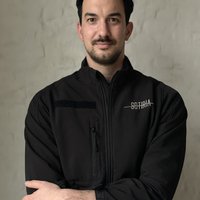Artificial intelligence & robotics
Forrest Meyen
Helping make space exploration more affordable and give the space mining industry a boost.

Global
Lerrel Pinto
Created the world’s largest robotics data set at the time by getting robots to create and label their own training data.

China
Xiang Yuan
Achieving important topological quantum breakthroughs in a new spatial dimension.

Europe
Angelos Tsereklas Zafeirakis
Managing Director of SOTIRIA

Europe
Rémi Besson
Co-Founder, Sonio
